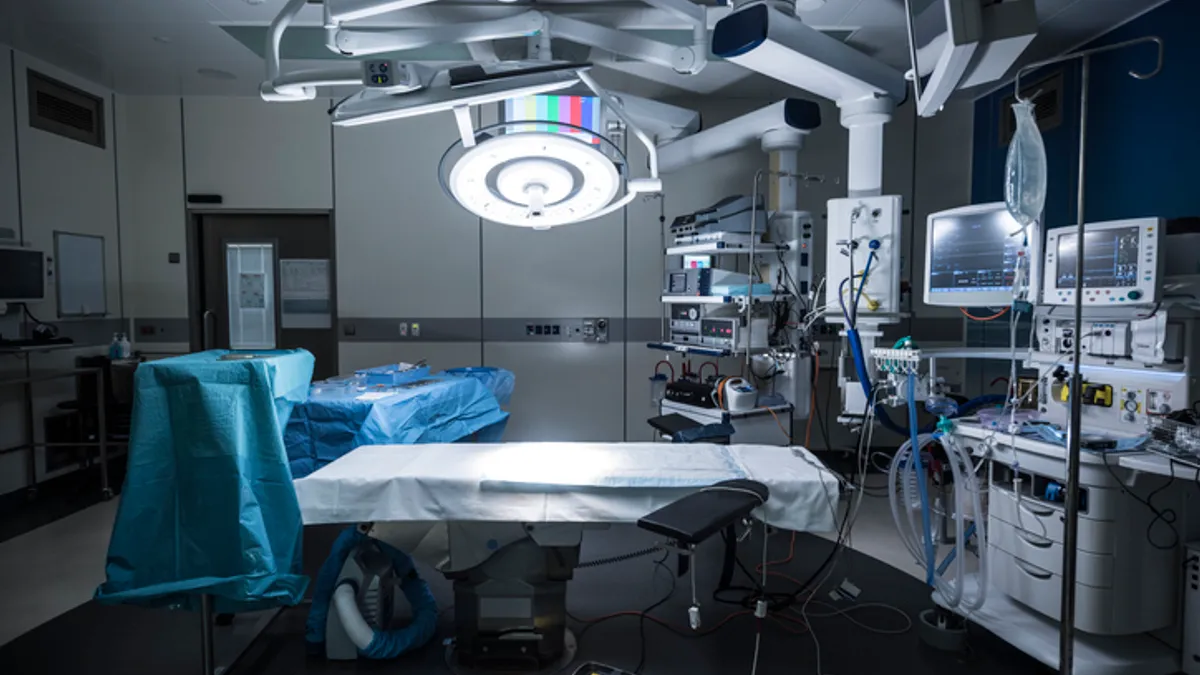Dive Brief:
- Sixty percent of hospitals still have procedure backlogs despite volumes increasing over the past two months, according to a survey of 50 healthcare centers by analysts at Jefferies.
- The analysts framed the increase in procedure volumes and persistence of backlogs as a positive for medtech companies such as Stryker and Zimmer Biomet. However, the survey also revealed widespread staffing shortages that could slow the conversion of the backlogs.
- The findings are in line with recent comments from Abbott Laboratories and Johnson & Johnson executives, who reported a rise in procedure volumes as the impact of omicron waned during the first quarter.
Dive Insight:
As medtech companies began to report earnings this week, they gave some clues as to whether the recovery of procedure volumes would offset other challenges faced by the industry.
Analysts at Jefferies added to the evidence on Wednesday by publishing the findings of a survey of 50 hospital executives. The survey found elective procedure volumes have increased at 80% of the surveyed sites since mid-February. Volumes are above pre-COVID-19 levels at almost two-thirds of the hospitals.
The analysts published their findings on the day Abbott released its first-quarter results. On a conference call to discuss the quarter, Abbott CEO Robert Ford said procedure volumes at the cardiovascular unit were "negatively impacted by elevated COVID case rates early in the year" but steadily improved as cases fell in the second half of the quarter. The improvement continued into April.
Ford's comment and the Jefferies survey data corroborated remarks J&J's CFO Joe Wolk made earlier in the week. Talking to investors, Wolk discussed "a steady uptick in surgical procedures this quarter with the easing of COVID restrictions in many parts of the world." J&J's medtech unit grew in the quarter.
However, the Jefferies survey suggests the recovery is incomplete, with 60% of hospitals reporting that they still have procedure backlogs. Half of the executives with backlogs expect to work through them in the next three months.
The finding suggests companies including Stryker and Zimmer that make devices used in elective or deferrable surgeries, such as orthopaedic, soft tissue and aesthetic procedures, may get a near-term boost as the backlog converts.
The pace of the conversion is linked to the availability of staff. Ninety percent of the hospital executives reported staffing shortages. Staffing is a long-term issue but 44% of the executives said it has worsened since before the pandemic. The finding echoes comments in recent quarters from medtech executives, who have called out hospital staffing as a headwind to sales growth.
While staffing was barely mentioned on the Abbott call, J&J singled it out as an issue, albeit mainly in the context of the acute effect of people being off work with COVID-19 on sales of an autoimmune medicine. Jennifer Taubert, head of pharmaceuticals at J&J, laid out the situation to investors.
"We did see staffing shortages because so many people got sick. People weren't able to go into work. So in more intensive resource settings in some of the markets, we did see slowdown in terms of delayed visits and new patient starts," Taubert said. "What we are seeing now is we're looking towards the end of March and in early April, we're seeing nice recovery there. And so this really, hopefully, was something really just at the end of last year and the beginning of this year."











